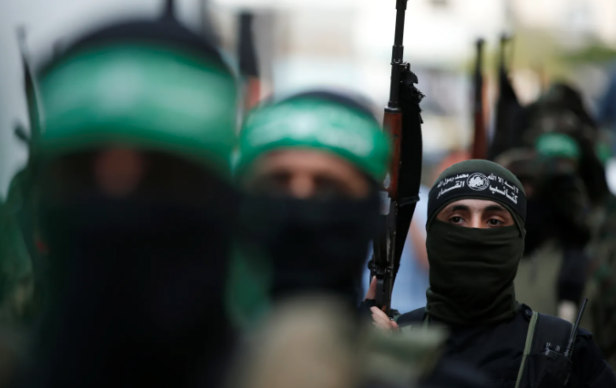Israel
Ideological Rifts in Israel War: Hamas vs. ISIS

Amid the smoky trails of the Israel war, Gaza’s horizon is tinged with the specters of conflict, echoing the grim tales of violence reminiscent of ISIS’s darkest days. Israeli officials, taking to the remnants of Twitter’s digital landscape, have drawn stark parallels, branding Hamas with the same brush of infamy once held by ISIS. This incendiary comparison broadcasts a chilling narrative of brutality in an already turbulent region, inviting the world’s gaze to a complex ideological chasm that separates Hamas, with its specific territorial and political agenda, from the broader, apocalyptic vision that once defined ISIS. As the world looks on, the question lingers: How do we untangle the threads of extremism from the tapestry of legitimate geopolitical struggle?
In the decades-long chess game of Middle Eastern politics, where kings and pawns have often been shuffled by the hands of ideology, the bloody squares of the board find themselves splattered anew. October 7th marked not just a violent outburst, but also the potential spark for global jihadi forces to reignite their dimmed beacon after years in the shadows. The fervor of jihadi propaganda has long thrived on the kindling of resentment, and the latest exchanges over Gaza threaten to fan these smoldering embers into flame once more.
Yet, it is crucial to navigate these treacherous waters with a keel of truth. Hamas and the zealots of ISIS and al Qaeda are ideological nemeses, sharing little but enmity and the vaguest outlines of a common foe. ISIS, with its caliphate dreams dissolved into the desert sands, once declared Hamas apostates for a litany of sins against its draconian interpretation of Islam. Al Qaeda, the other dark star in the jihadi cosmos, has praised the recent violence yet historically chided Hamas for ideological impurities.
Hamas, rooted in the soil of the Palestinian struggle, sprouted from the Muslim Brotherhood, espousing a political path anathema to the global jihadis’ theocratic fantasies. Even Osama bin Laden, the dark shepherd of al Qaeda’s early days, found common ground with Hamas’s resistance, though the group’s dalliance with democracy and political power later drew his ire.
Within the labyrinth of jihadi politics, Hamas has walked a tightrope bathed in the blood of conflict. While its armed wing, the Qassam Brigades, has drawn grudging respect, its governance and political maneuvers have been met with scorn by the purists of jihad. This delicate dance of distinction has led to public fumbles, as when Al Qaeda’s al-Yazid mistakenly sang praises of ideological unity with Hamas, only to be chastised by the jihadi chorus.
The chasm between these entities is a tale of two visions for the Islamic world. The global jihadis, embroiled in their apocalyptic struggle against the ‘apostate’ rulers of Muslim lands, view the Palestinian cause through a prism of global insurgency. Their calls for battle, echoing across the desert and through the virtual realms, seek to paint the conflict in broad strokes of cosmic war.
The streets of Gaza and the back alleys of the Middle East tell a tale of a people caught between the hammer of Israeli might and the anvil of jihadi extremism. For the everyday Palestinian, the ideological battles of distant warlords matter little compared to the crushing weight of the present horror. Their stories, their losses, their desperate quest for a semblance of normalcy amidst the ruins – these are the human threads in the tapestry of this tragedy.
The global jihadis’ attempts to graft their narrative onto the Palestinian cause have met with a stony silence from the alleyways of Gaza to the broader Muslim world. Even as the conflict feeds the propaganda machines and stirs the anger of a disenfranchised youth, the ideological gulf between Hamas and the jihadi ideologues remains a chasm too wide for many to cross.
In the haunting glow of the setting sun over Gaza, one can discern the outlines of a world weary of war. The calls to arms of ISIS and al Qaeda, once thunderous, now seem but distant echoes against the cries for peace and a return to normalcy. The future looms uncertain, a shrouded landscape that the weary inhabitants of Gaza must navigate, carrying the burdens of history, the scars of the present, and the slender hope for a tranquil dawn.
As the dust settles and the world turns its gaze to the next unfolding crisis, one is left to ponder: Will the shared blood of Palestinian and Israeli alike water the seeds of peace, or will it only nurture the bitter harvest of hatred and extremism? The answer lies not in the shadow of the caliphate’s fallen flag, nor in the smoky corridors of power, but in the hearts of those who call this ancient land home. Will they choose the path of reconciliation,













You must be logged in to post a comment Login